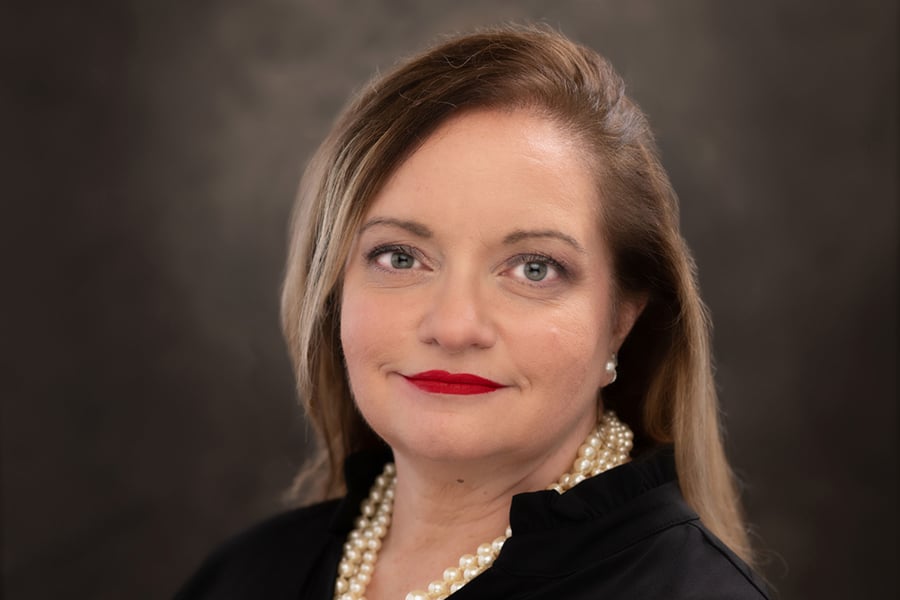

Lisa Gomez would bring practical experience in helping sponsors run plans to the Department of Labor, industry representatives said in anticipation of her Senate confirmation later this month.
The Senate Health Education Labor and Pensions Committee on Dec. 2 approved Gomez’s nomination as assistant secretary of labor and head of the Employee Benefits Security Administration. A partner at the labor law firm Cohen Weiss and Simon, Gomez was advanced on a 12-10 vote, with one Republican joining the panel’s Democrats to send her nomination to the Senate floor.
Although almost all committee Republicans voted against her, she likely will be approved by the full Senate, which is split 50-50 between Democrats and Republicans. Nominees for administration positions cannot be filibustered and are confirmed by a majority vote.
The question is when Gomez’s nomination will be put on a crowded Senate calendar.
“There are a number of outstanding nominees in the Senate,” said Michael Kreps, principal at Groom Law Group. “Typically, they do a package at the end of the year.”
Gomez joined Cohen Weiss and Simon in 1994 and became a partner in 2002. She specializes in employee benefits law, working with employer and union retirement-plan sponsors on compliance with the federal retirement law, the Employees Retirement Income Security Act.
Her background will enable her to bring a different perspective to EBSA, Kreps said.
“It’s helpful to have someone as head of the agency who has a lot experience in the weeds as a practitioner,” Kreps said. “The leadership there doesn’t have a lot of private sector experience. You don’t see the same things when you’re in government as you do when you’re out of government.”
The fiduciary duty that sponsors must give to 401(k) participants, for instance, can be a complicated set of compliance demands. Gomez will know ERISA rules from the sponsor point of view.
Lance Schoening, director of policy at Principal, said that perspective will enable Gomez to see not only how a new regulation might provide employee protections, but also the challenges it could present to employers.
“She understands the realities of running a retirement plan,” Schoening said. “That’s something you don’t always get [in an EBSA official]. Her background with employers will give her some insights that will be helpful.”
Gomez is set to join the DOL in the middle of its work on a pending rule proposal to expand the definition of fiduciary for retirement-savings investment advice, including rollovers from 401(k) to individual retirement accounts. The agency also is developing a proposed rule that encourages plan sponsors to consider environmental, social and governance factors in selecting investments and another proposal on ESG and proxy voting.
“She’ll be able to immediately grasp what’s in the pipeline,” Schoening said. “I don’t think we’ll see any lag time there. She’ll be running out of the gate.”
Gomez was nominated in July and had an October hearing in the Senate HELP Committee. Her nomination was held up over GOP opposition to the ESG and proxy proposals, Kreps said.
If she gets confirmed, Gomez will fill a role that has been vacant since Preston Rutledge, the EBSA director in the Trump administration, stepped down in May 2020. Since late March, the agency has continued its rulemaking operations under the leadership of acting assistant secretary Ali Khawar.
“They have been very active,” Schoening said. “Mr. Khawar has been instrumental in keeping that agenda moving.”
But a confirmed EBSA head is good for the DOL, Kreps said.
“It functions better if it has a full slate of appointed officials,” he said. “It can get more done.”

The looming threat of federal funding cuts to state and local governments has lawmakers weighing a levy that was phased out in 1981.

The fintech firms' new tools and integrations address pain points in overseeing investment lineups, account monitoring, and more.

Canadian stocks are on a roll in 2025 as the country prepares to name a new Prime Minister.

Carson is expanding one of its relationships in Florida while Lido Advisors adds an $870 million practice in Silicon Valley.

The approval of the pay proposal, which handsomely compensates its CEO and president, bolsters claims that big payouts are a must in the war to retain leadership.
RIAs face rising regulatory pressure in 2025. Forward-looking firms are responding with embedded technology, not more paperwork.
As inheritances are set to reshape client portfolios and next-gen heirs demand digital-first experiences, firms are retooling their wealth tech stacks and succession models in real time.
